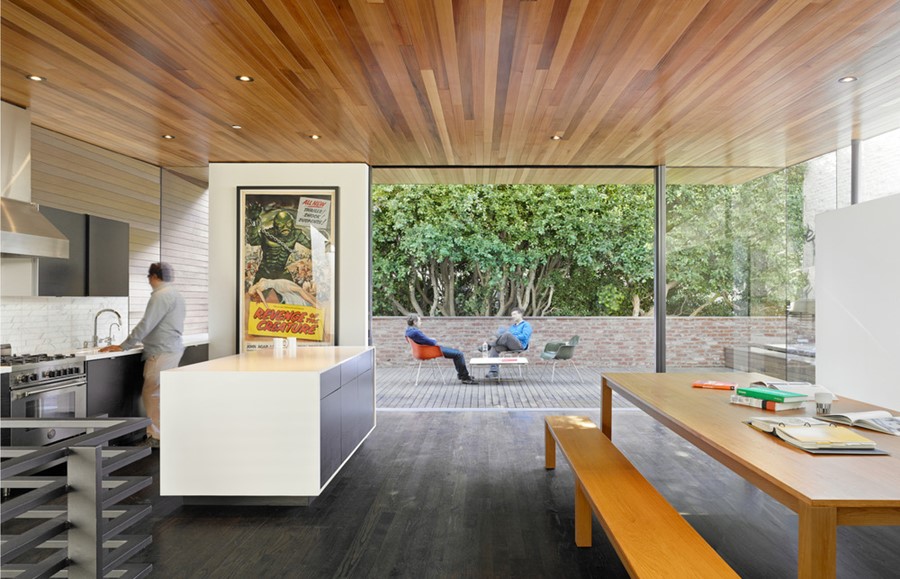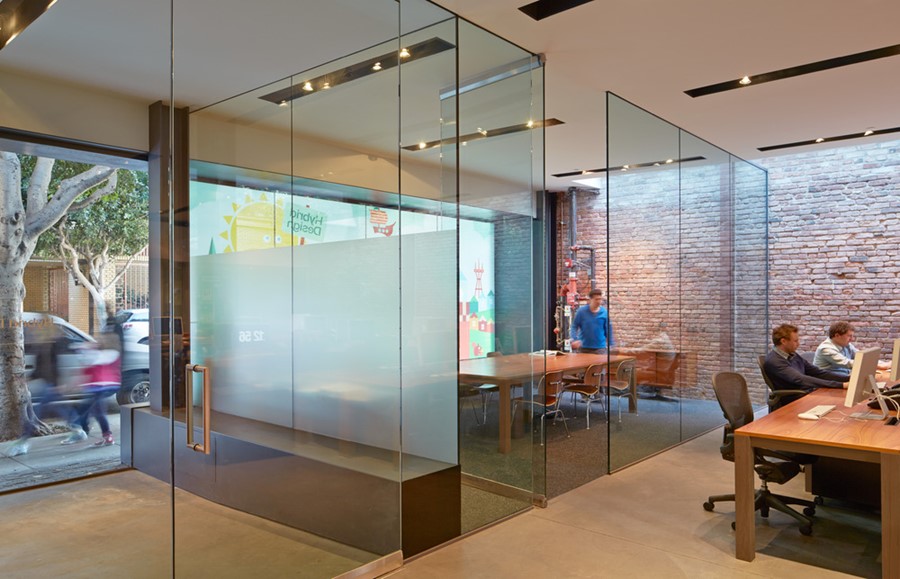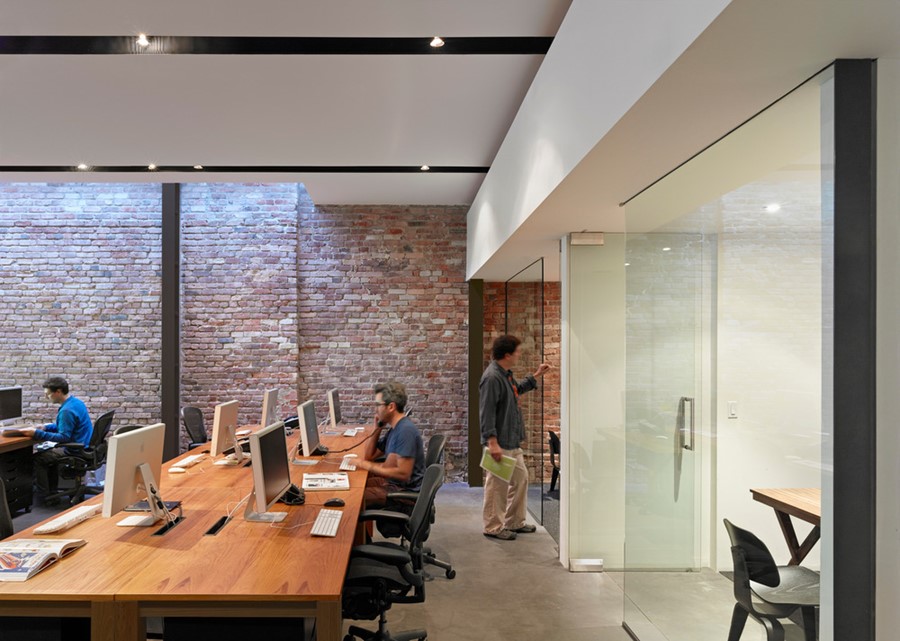Hybrid Design is a project designed by Terry & Terry Architecture and is located in San Francisco, United States.
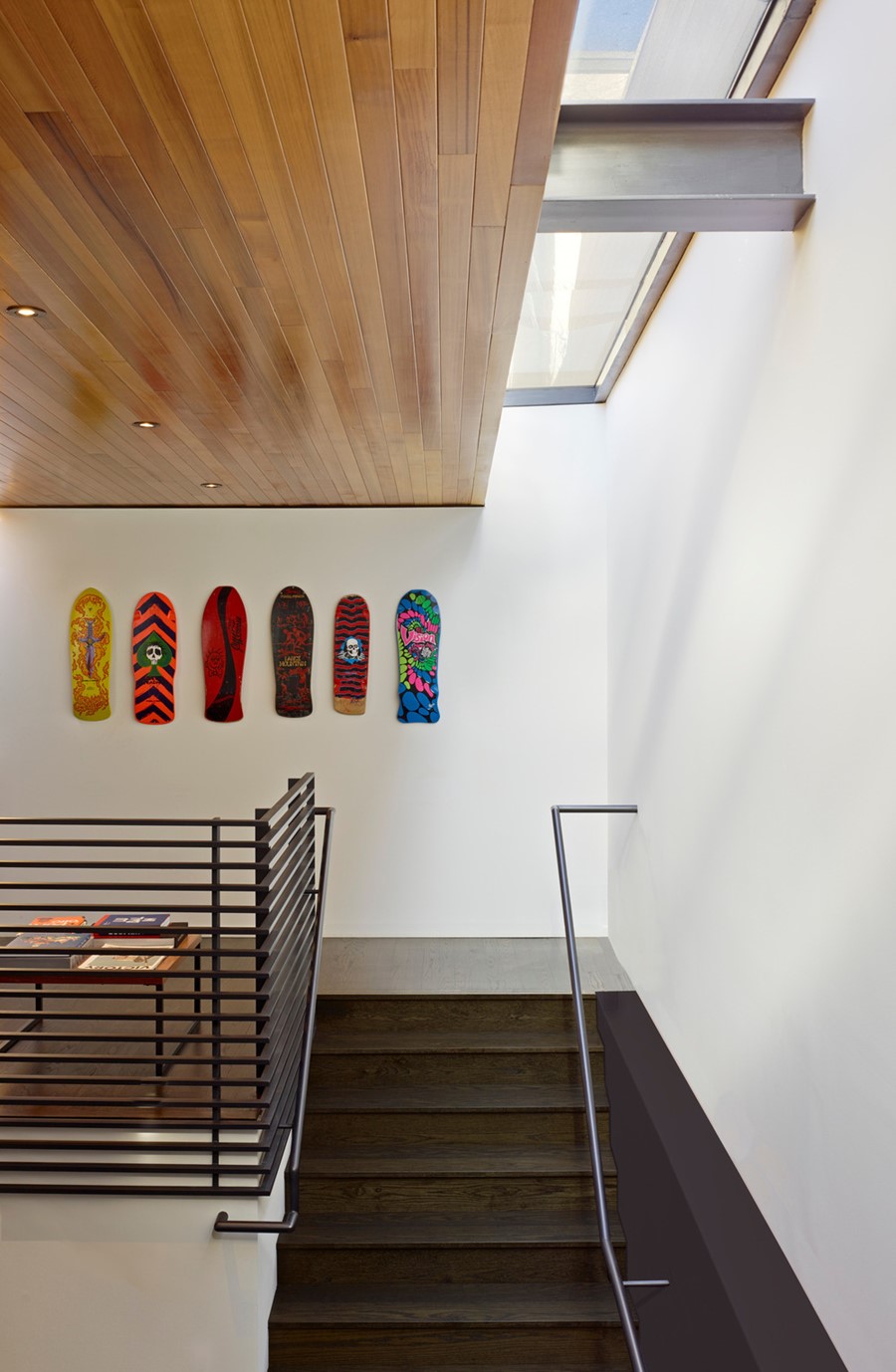
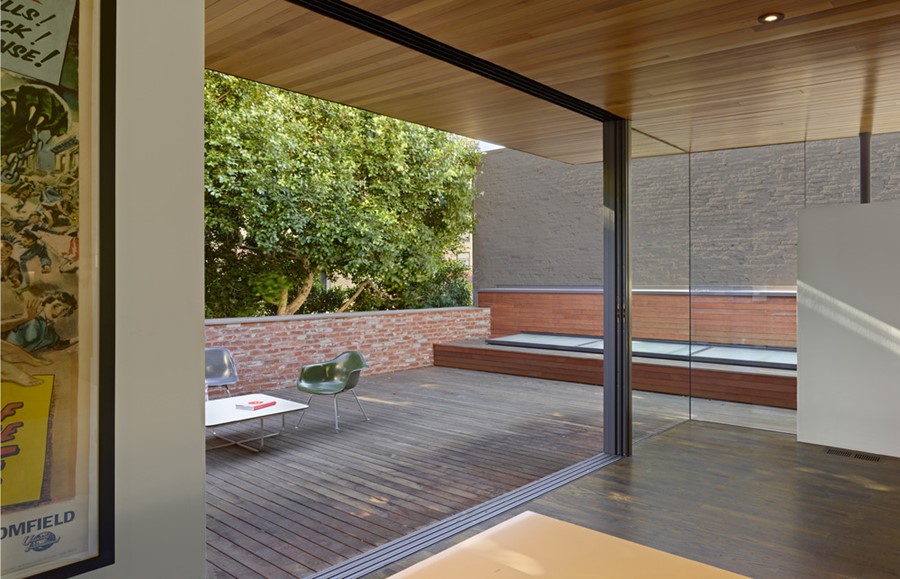
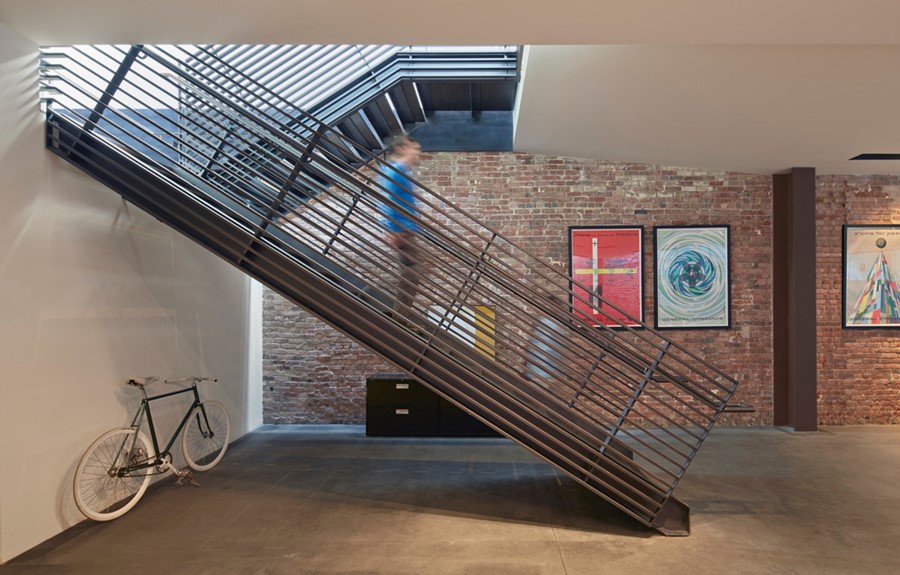
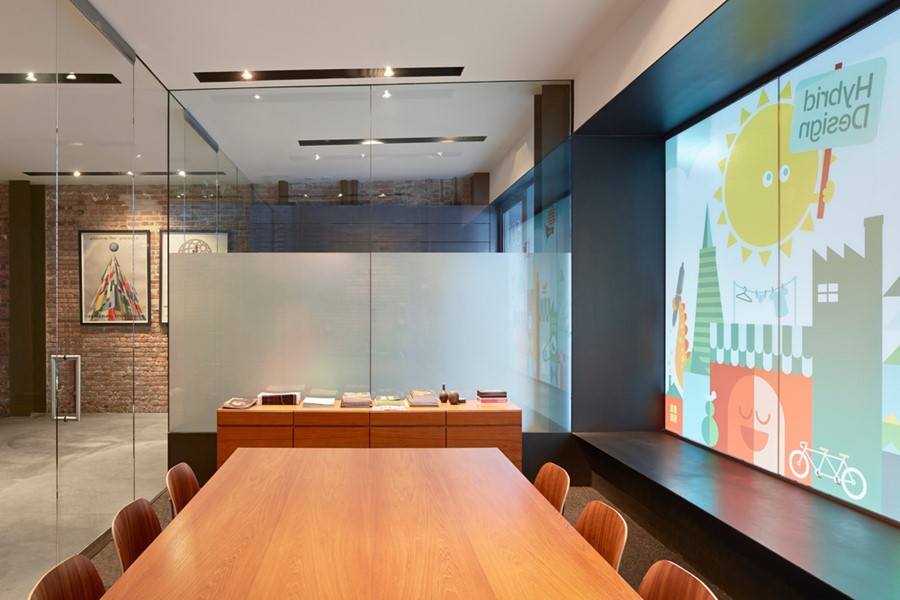
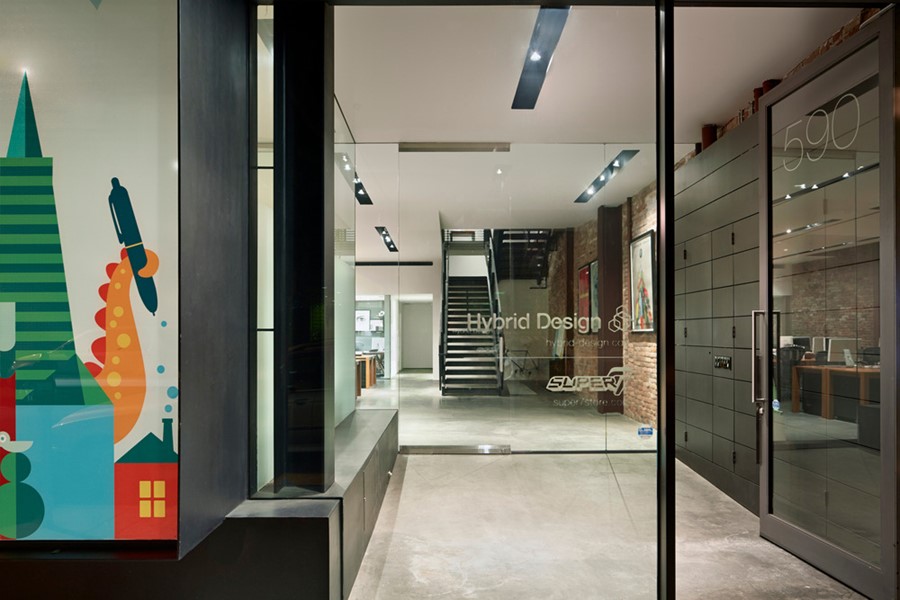
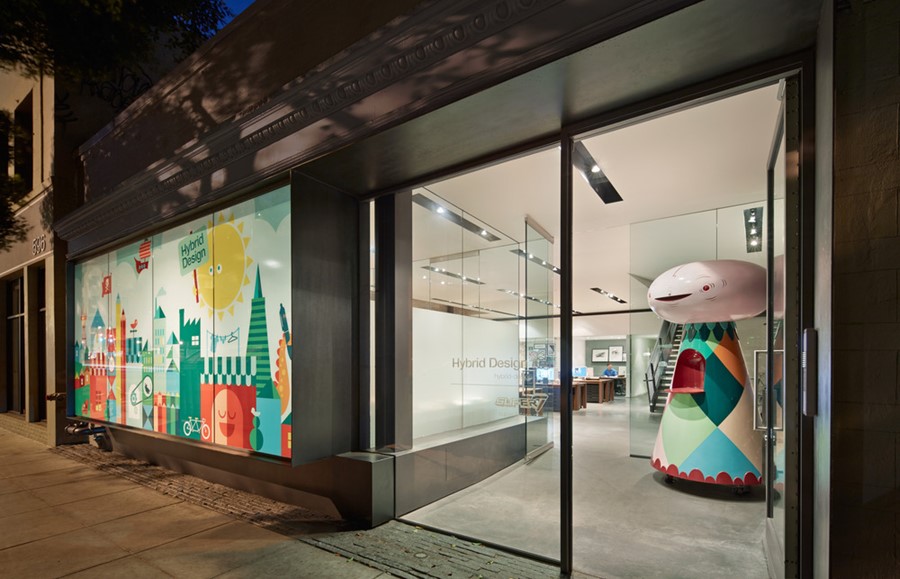
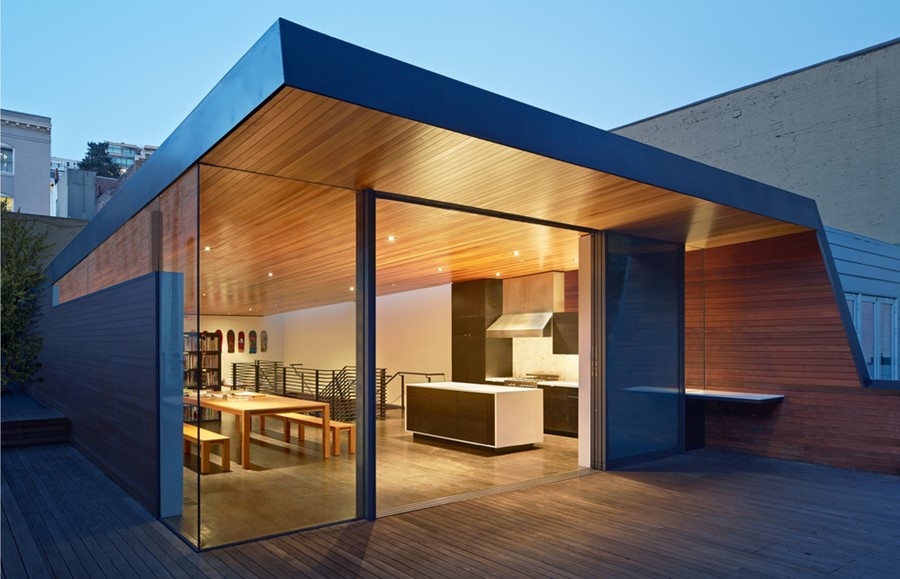

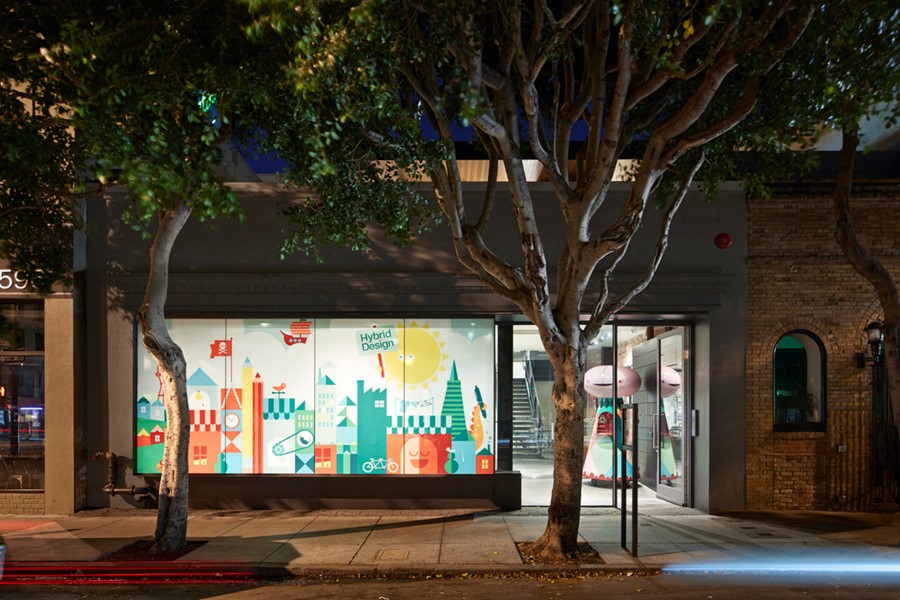
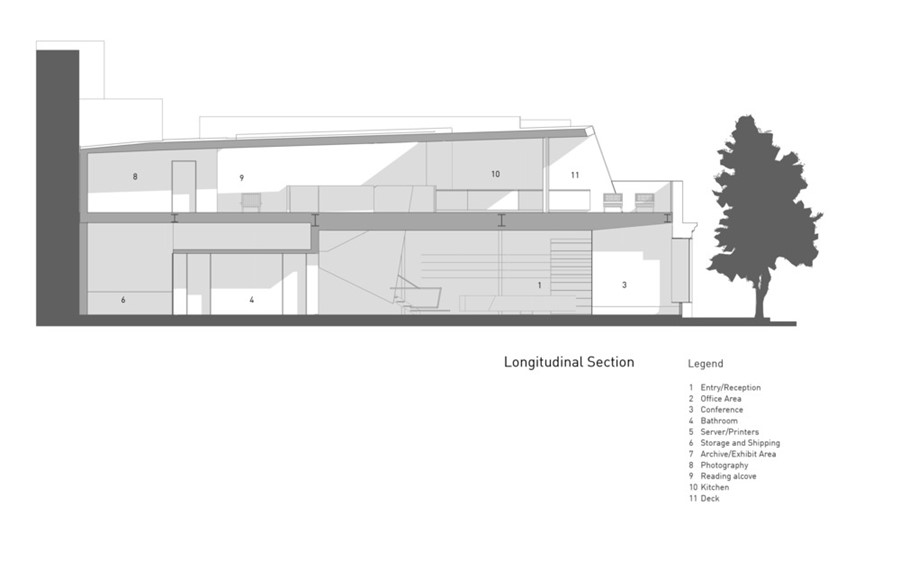
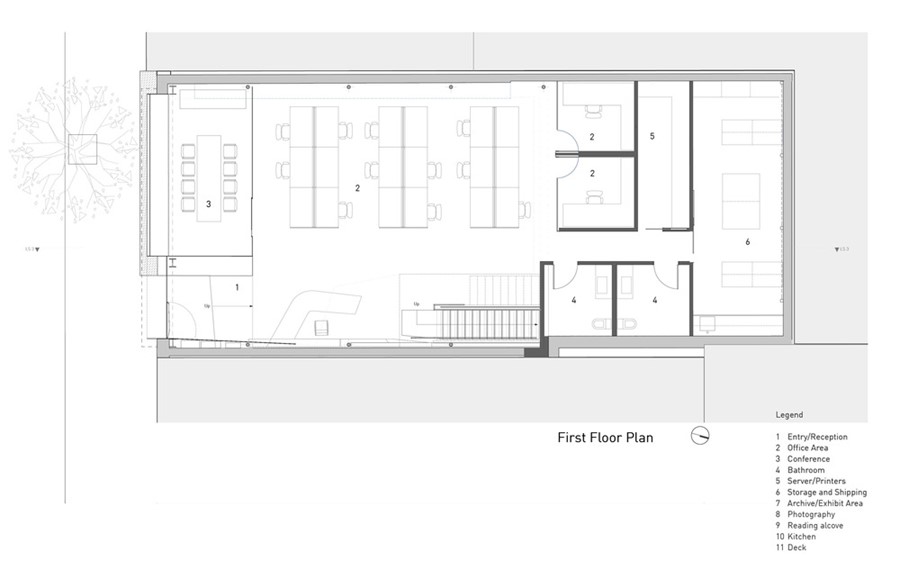
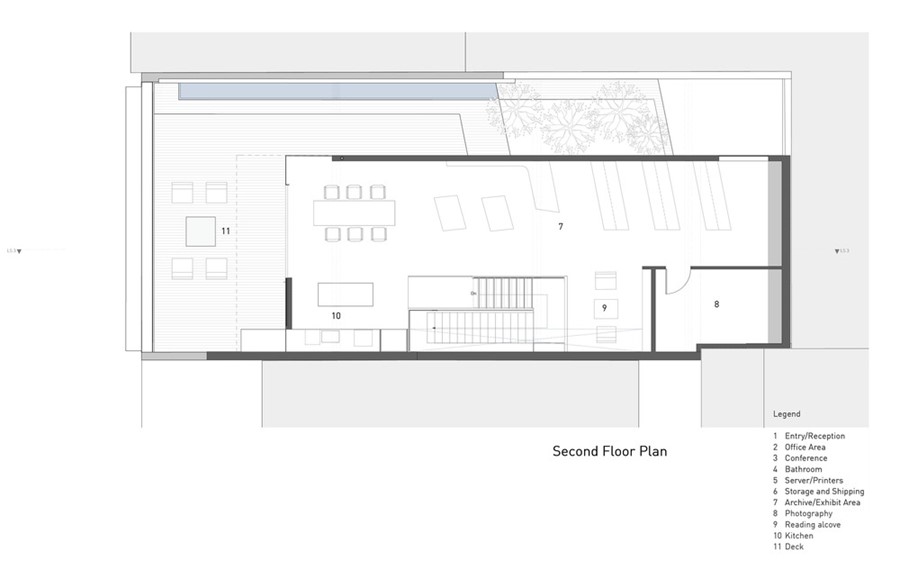
This project houses a growing graphic/product design office within an existing brick building located in the Jackson square historic district. The design required the removal of the existing interior structure while leaving the existing perimeter brick structure and the original part of the front facade intact. The new design is comprised of adding a second story structure above the original floor that opens out to a roof deck injecting elements of the outdoors into the core of the office and inserting a steel ribbon surround at the front facade to create a large bay window and entry shroud, forming a looking glass with the work place and the eventful street life.
The original building was destroyed in the 1906 earthquake and fire. Set in the heart of the city’s red-light district a new brick structure was quickly erected to house a new bar/saloon. At a more recent date the building facade was altered and for many years housed a cafe and office space. The partitions and interior walls were peeled back to reveal the existing perimeter brick walls and serve as a backdrop for the main office area. The new addition above straddles the existing structure and provides an informal conference area that is adjacent to the kitchen and outdoor deck space for informal gatherings echoing a bit of the past.
A series of steel moment frames are used for the primary structure throughout the building to seismically brace the existing brick walls and to collect the additional loads of the new second story. The roof plane and roof deck have been peeled back slightly from the perimeter walls to create skylight openings which allow natural light to spill into the core of the building. The main office space, and conference areas are located on the first floor, additional office space and archive/exhibit space on the second floor.
Most of the existing structure was retained and renovated rather than demolished. The original masonry walls at the lower floor provides thermal mass and absorbs heat energy during the day, keeping the interior comfortable, and helping to maintain a moderate, baseline temperature for the cooler evenings. Since the structure is located in a relatively dense urban area, the masonry walls also add protection against fire. The new addition is designed with deep overhangs on the south side to maximize the benefits of indirect natural lighting and reduce the need for electric lighting.
Photography: Bruce Damonte photography
